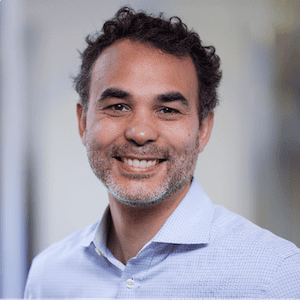-
The Straightest Path to Social Impact: The Power of Focusing on Farmers
After speaking to hundreds of low-income farmers in Nepal, India and Myanmar, Aditi Seshadri learned some basic truths about the challenges they face, the importance of their work - and the outsize value of interventions aimed at supporting them. She explores the reasons why a focus on farmers can maximize a social enterprise's impact.
- Categories
- Agriculture
-
Blockchain for Agriculture: Improving Supply Chain Efficiency and Access to Finance for Smallholder Farmers
Though blockchain applications in agriculture are still in early stages, they have intriguing potential that merits increased investment and exploration, says Nikki Brand. She discusses several innovative uses of the technology across the agriculture supply chain, and highlights new Stanford University research on the organizations and initiatives that are leveraging blockchain to drive social impact.
- Categories
- Agriculture, Technology
-
More College = Less Poverty: The Impact of Peer-to-Peer Lending
More than 57 million students globally are qualified but have not enrolled in higher education, mostly because they lack the money. Yet banks often don't want to lend to them, due to their lack of collateral, uncertain earning potential and long repayment periods. That’s why Ryker Labbee and Kirk Acevedo launched peer-to-peer student lender Zomia, targeting nearly 1 million potential college students in Myanmar and Cambodia. They explore how the model could scale into other markets and reduce poverty.
-
Your Customers Aren’t Data Points: How Social Enterprises Can Avoid Three Impact Investor Red Flags
Villgro President PR Ganapathy has met with hundreds of early-stage social entrepreneurs – and he's noticed that they keep making the same mistakes when seeking impact investing. As part of NextBillion's “Survival Guide for Raising Capital” series, Ganapathy shares three essential tips to help entrepreneurs avoid some common red flags when pitching impact investors.
- Categories
- Investing, Social Enterprise
-
Redefining What It Means to be a Next-Generation Energy Company in Africa
More than 650 million people in sub-Saharan Africa lack electricity. Distributed energy service companies face many obstacles in serving this market - from finding the right capital investors to cultivating on-the-ground expertise. Mansoor Hamayun, CEO of solar distributed energy firm BBOXX, says his company is taking aim at several of those challenges with a new financing mechanism. In partnership with Bamboo Capital Partners, BBOXX is launching an investment platform that aims to break down barriers preventing energy companies from scaling up in developing markets.
- Categories
- Energy, Environment
-
Digital Remittances: Now that they’re here, where are they headed?
Economic migrants send US $600 billion back to their home countries each year, most using expensive "traditional" agent networks, despite the availability of cheaper digital channels. But Xavier Martin Palomas with the Digital Frontiers Institute notes that in the past five years, we've seen a new wave of players and a renewed push toward digitizing remittances. Next month the Digital Frontiers Institute will launch its first course, Remittances in the Digital Age, to study the rapidly changing industry.
- Categories
- Finance
-
Established Social Enterprises: Have You Outgrown Business Accelerators?
Before joining established social enterprise TaroWorks as its CEO, Brent Chism spent two years earning an MBA degree and worked at three tech startups. So when a friend suggested he enroll in a business accelerator, Chism scoffed: "Did I really need to go back to school to learn how to raise the investment capital needed to fuel growth? Hadn’t I checked that box already?" Chism admits it was partly his ego talking; with some new research on their benefits, he advises business leaders not to overlook the benefits of accelerators.
- Categories
- Impact Assessment, Social Enterprise
-
A Recipe for Understanding: How Food Entrepreneurship and Gastrodiplomacy are Bringing Syrian Refugees and Turks Closer
Nearly 6 million people have fled Syria's brutal civil war, with many settling in nearby Turkey. These refugees, as well as millions of other migrants around the world, often open restaurants and other eateries, drawing upon their cultural heritage to earn a living. The Livelihood Innovations through Food Entrepreneurship (LIFE) project was created to help these business owners – some 240 entrepreneurs will receive business support services offered at two food incubators.
- Categories
- Uncategorized










